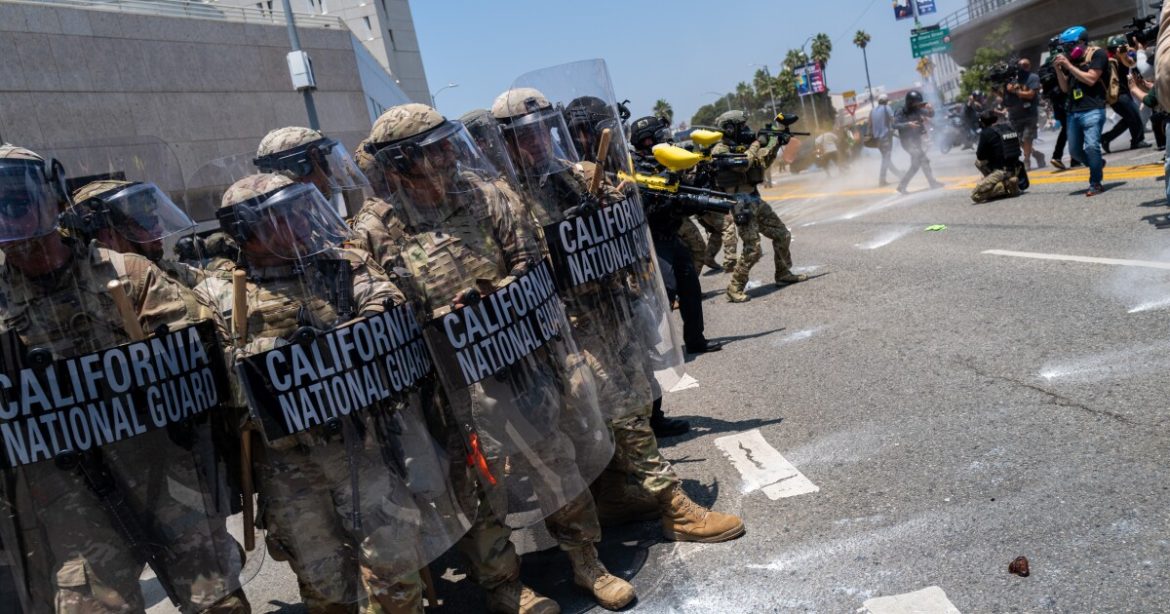LOS ANGELES — Legal representatives for President Donald Trump and California Governor Gavin Newsom engaged in a heated legal dispute over the deployment of the National Guard in Los Angeles, debating whether the move qualifies as a “constitutional exception.”
The conflict began after President Trump ordered federal National Guard troops to the city amid ongoing unrest. Trump’s administration defended the decision as necessary to restore public order and ensure safety.
Federal attorneys argued that the deployment met the criteria for immediate federal intervention, citing constitutional grounds and historical precedents during civil unrest.
Governor Newsom and his legal team opposed the action, stating that the federal government had acted without state authorization.
Newsom emphasized the state’s constitutional right to manage its internal affairs, including responses to civil disturbances. His lawyers argued that the deployment without consent infringed on state sovereignty and exceeded federal authority.
At the core of the legal argument is the definition and scope of a “constitutional exception.” Lawyers for Trump claimed that the unrest created extraordinary circumstances that justified federal action.
They referenced past instances where federal troops were used in domestic conflicts to support law enforcement and protect the public.
Newsom’s legal team rejected this interpretation, maintaining that the U.S. Constitution clearly delineates limits on federal power in domestic matters.
They argued that the federal government must obtain state approval before deploying troops within state boundaries except under narrowly defined conditions.
As of now, the case remains under judicial review. Both the Trump administration and Newsom’s office have indicated they are prepared to appeal, signaling that the dispute could extend into higher courts.

